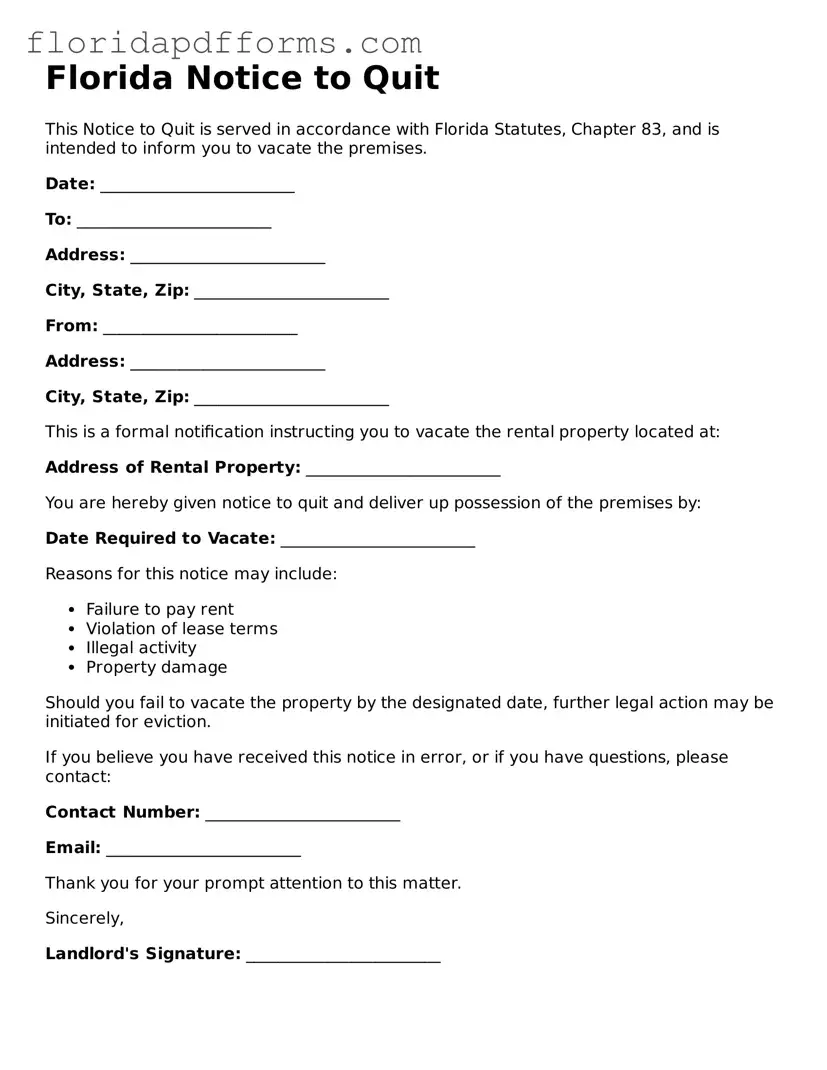Official Notice to Quit Template for Florida
The Florida Notice to Quit form is a legal document that landlords use to inform tenants of their intent to terminate a lease agreement. This form outlines the reasons for eviction and provides tenants with a specified timeframe to vacate the property. Understanding how to properly fill out this form is crucial for both landlords and tenants to ensure compliance with state laws.
Ready to take the next step? Fill out the Notice to Quit form by clicking the button below.
Modify Notice to Quit Now

Official Notice to Quit Template for Florida
Modify Notice to Quit Now

Modify Notice to Quit Now
or
⇓ Notice to Quit File
Don’t stop halfway through your form
Finish your Notice to Quit online with quick edits and instant download.